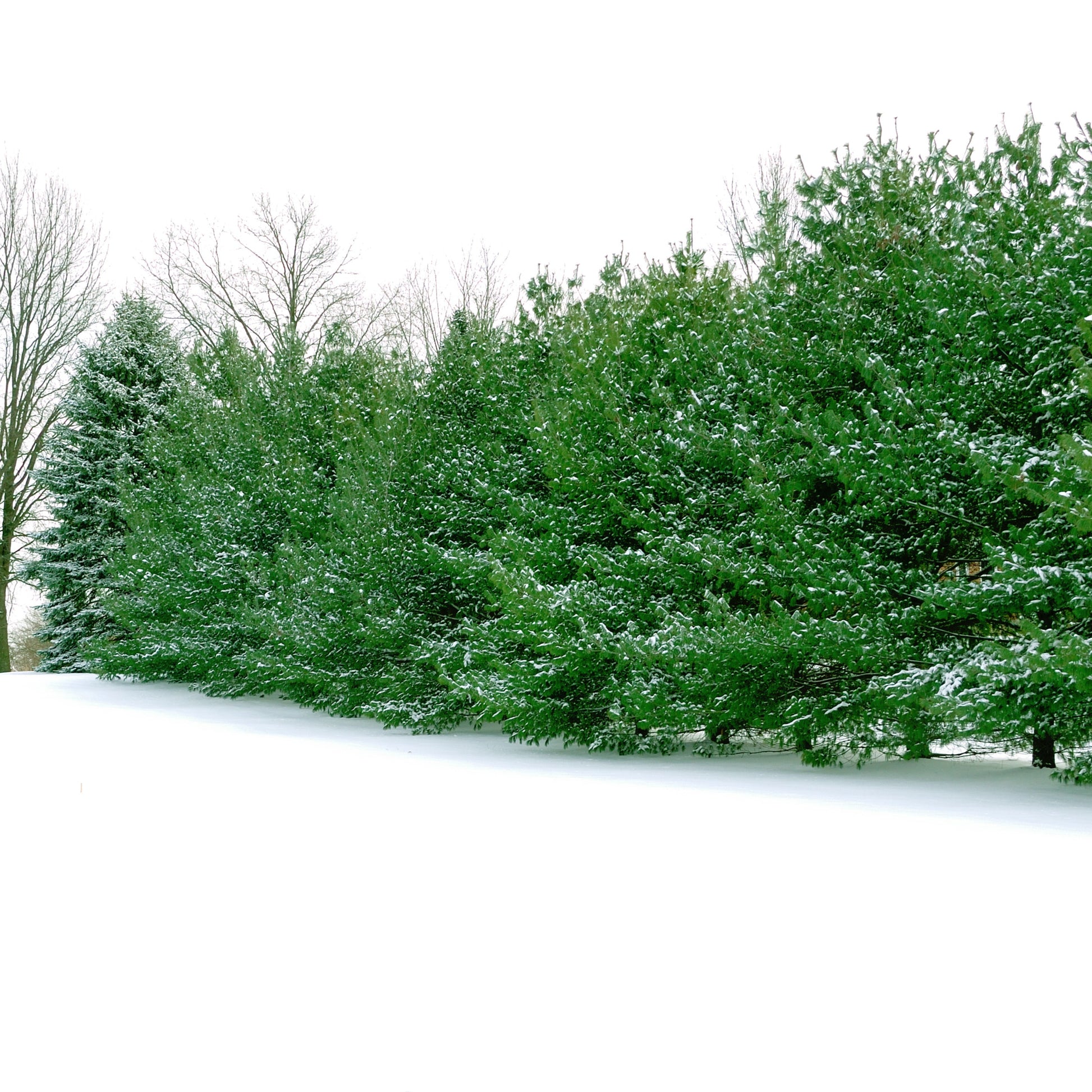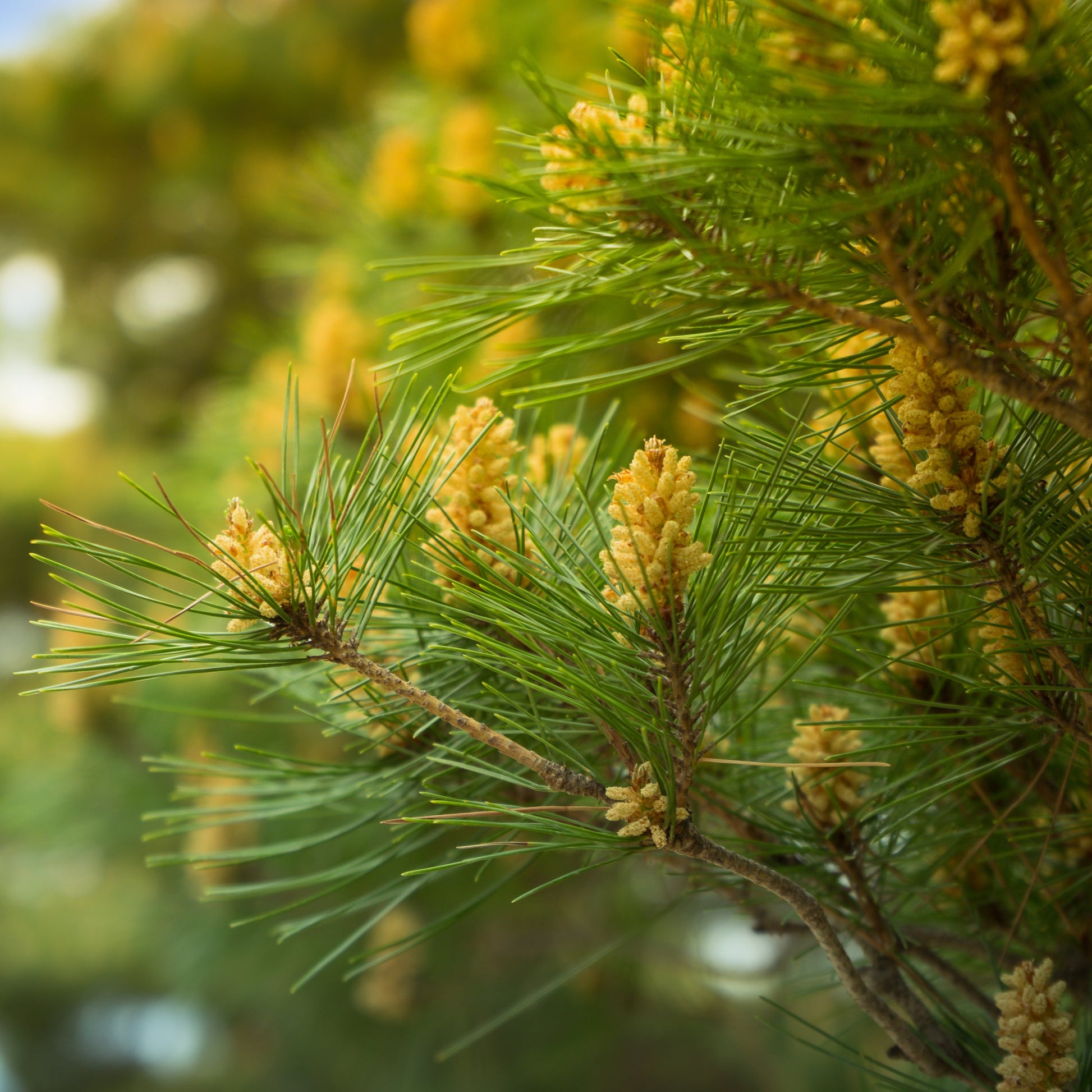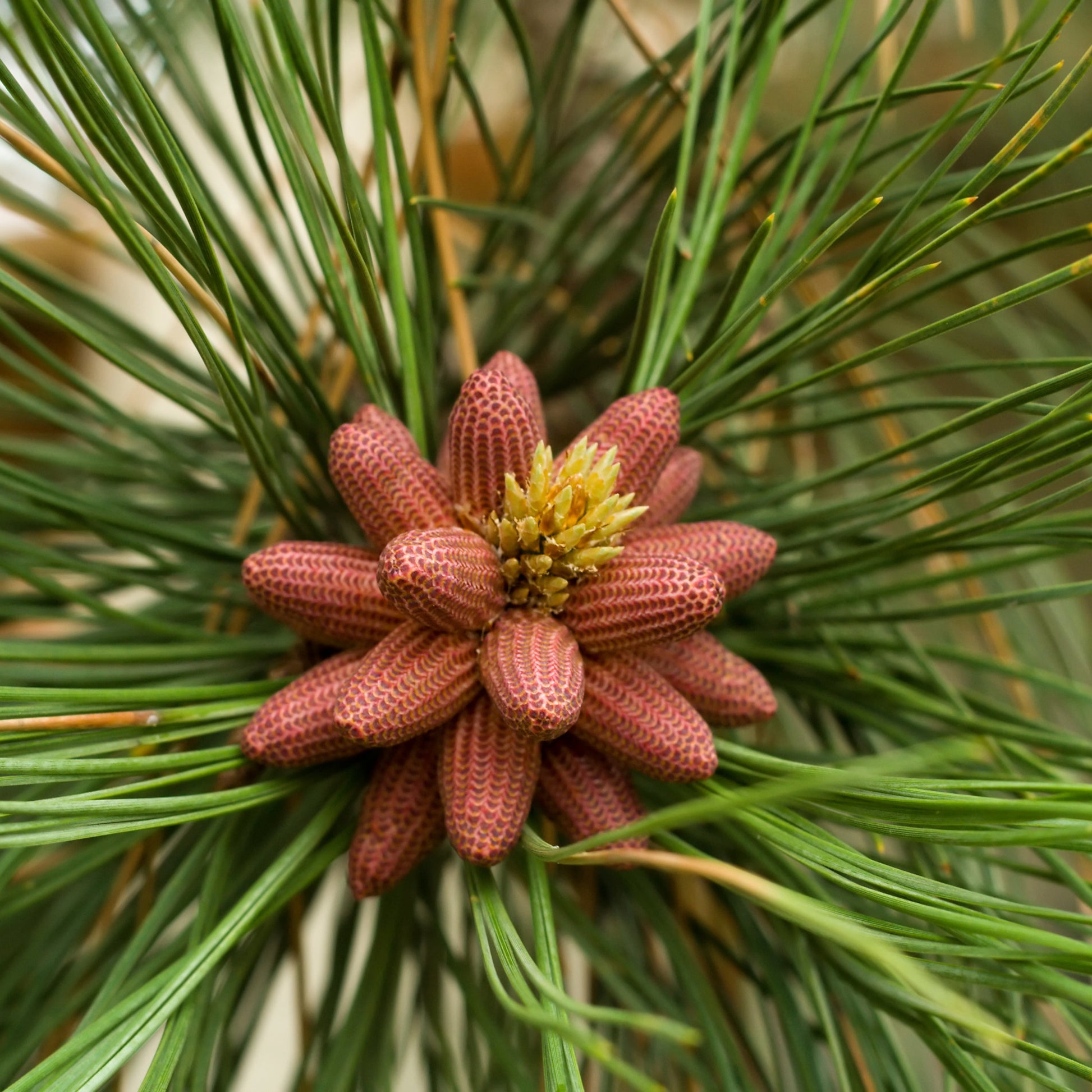Limited Quantities - Reserve Now For Fall
Eastern White Pine
Eastern White Pine
Couldn't load pickup availability
Pinus strobus
Eastern White Pine
The Eastern White Pine is a majestic native conifer known for its soft, feathery needles, fast growth, and towering mature height. As one of the most iconic evergreens of North America, this adaptable species is prized for its graceful form, wildlife value, and ability to thrive in a variety of conditions.
Perfect for windbreaks, privacy screens, naturalistic plantings, and reforestation efforts, the Eastern White Pine adds year-round structure, habitat, and beauty to landscapes large and small.
Eastern White Pine
| Attribute | Details |
|---|---|
| 🌿 Botanical Name | Pinus strobus |
| 🏷️ Common Names | Eastern White Pine, Northern White Pine |
| 🌳 Mature Height | 50–80 feet (can exceed 100 feet in ideal conditions) |
| 🌐 Mature Width | 20–40 feet |
| 📈 Growth Rate | Fast (2–3+ feet per year) |
| ⏳ Lifespan | 100–200+ years |
| 🧊 USDA Zones | 3–8 |
| ☀️ Sun Preference | Full sun to light shade (best growth in full sun) |
| 🧱 Soil Type | Well-drained loam, sandy, or rocky soils |
| ⚖️ Soil pH | Slightly acidic to neutral (5.0–6.8) |
| 💧 Water Needs | Moderate; drought-tolerant once established |
| 🌲 Foliage Type | Evergreen; soft, flexible blue-green needles in bundles of five |
| 🐦 Wildlife Value | Provides food and shelter for birds, mammals, and pollinators |
| 🌿 Growth Habit | Pyramidal when young; opens with age to horizontal branching |
| ↔️ Spacing | 15–25 ft for screens; 30–40 ft for open-grown specimens |
| 🏡 Landscape Uses | Windbreaks, reforestation, privacy screens, habitat plantings |
| 🧹 Maintenance Level | Low |
Environmental Benefits
🌲 Provides year-round shelter and food for wildlife and songbirds
🌬️ Acts as an effective windbreak and noise barrier in large landscapes
🌿 Helps with soil retention and slope stabilization
🌎 Contributes to carbon sequestration and reforestation efforts
Pros & Cons
| ✅ Pros | ⚠️ Cons |
|---|---|
| 🌲 Fast-growing and long-lived native evergreen | 🪵 Can be too large for small residential yards |
| 🧬 Highly adaptable to a range of soil types and climates | ❄️ Vulnerable to ice damage in exposed winter conditions |
| 🐦 Excellent wildlife habitat year-round | ✂️ Occasional pruning needed to remove dead or damaged lower branches |
| 🏞️ Ideal for naturalistic and conservation landscapes | 🌞 Needs full sun for optimal growth and structure |
| 🌿 Low-maintenance once established | 💧 Young trees require watering during drought or dry spells |
Planting & Care Guide
🛁 Water thoroughly before and after planting; maintain moisture in the first season
🕳️ Dig a hole twice as wide as the root ball; plant at natural soil depth
🌾 Apply mulch 2–3 inches around the base to conserve moisture and reduce weeds
💦 Water weekly during dry periods, especially during the first 2–3 years
✂️ Prune selectively in late winter to remove dead or crossing branches
🧪 Fertilize only if growth is poor; prefers naturally nutrient-rich soils
The Eastern White Pine is a classic and commanding native evergreen, offering fast growth, year-round greenery, and ecological value across diverse landscapes. Whether planted for privacy, wildlife support, or natural beauty, this American original delivers strength, softness, and timeless appeal for generations.
Share






